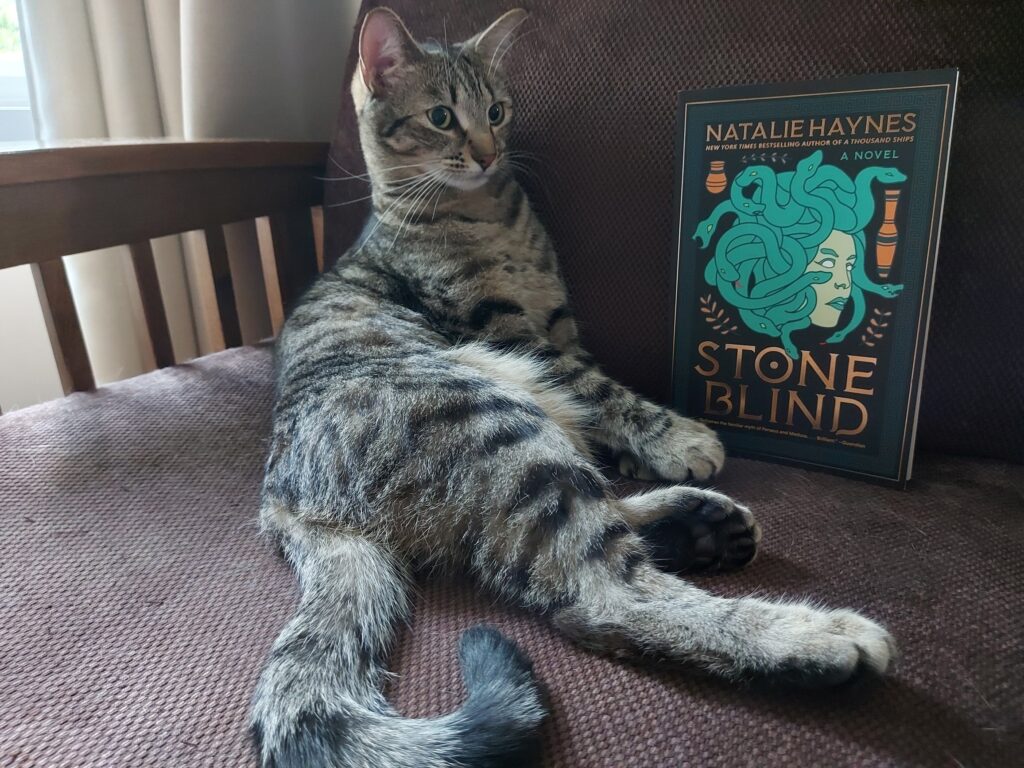Stone Blind by Natalie Haynes

Stone Blind is the newest novel by Natalie Haynes. I have previously reviewed her books A Thousand Ships and Pandora’s Jar on this blog, so if you have been following along, then you know that Haynes uses her extensive knowledge of Greek mythology to retell the stories of Greek mythological women through a feminist lens, picking apart the misogynist views passed through time by the white men who originally told their stories. Stone Blind is an interesting read infused with Haynes engaging humour, but it did not inspire any strong feelings in me, I guess because it does not tell me something I have not already learned through Haynes other books and through other feminist retellings of Greek mythology.
The main narrative thread in Stone Blind is the story of Medusa and Perseus, previously featured in Haynes’s Pandora’s Jar. As a refresher, Medusa is the OG of victim blaming, a Gorgon who is the most beautiful and humanlike out of she and her two sisters. Medusa is raped by Poseidon in Athene’s temple, but instead of Athene taking it out on Poseidon, she punishes Medusa by turning her hair into snakes and cursing her with a gaze that will turn anything she looks at into stone. Medusa hides herself in a cave so that she cannot hurt anyone, until the hapless, definitely not heroic, Perseus comes along and chops her head off while she is sleeping.
Although it is quite humorous how Perseus is depicted as a cowardly, immature brat who cannot do anything without the help of the gods, and Zeus as a randy jackass, Stone Blind is not an anti-male treatise. The characters, gods and humans alike, are depicted in all their complicated glory. Even Perseus is a bit of a sympathetic character initially when you realize that the reason he goes on his quest for a Gorgon head in the first place is to save his mother from being forced into a horrible marriage. But then once he has Medusa’s head, he becomes completely corrupted by ruthless power. Athene, the goddess who curses Medusa, is like a child who has never been taught how to process her feelings. She is assaulted herself and she feels the violation and shame of the assault, but she does not know how to translate those feelings into the sympathy she should have felt for Medusa when she was violated by Poseidon. Honestly, the female characters in this novel, aside from Medusa and her sisters, are not very sympathetic, but they are not simply reduced to scorned or monstrous women. Haynes gives us their complete, complicated stories so that we can empathize with how their relationships with men and other women inform their actions.
I feel a bit ho hum about Stone Blind, but for reasons not to do with Haynes’s writing. I think I am just tired of the tragedy of women’s stories in Greek mythology. It would be nice if someone rewrote the narrative further and gave them better endings.